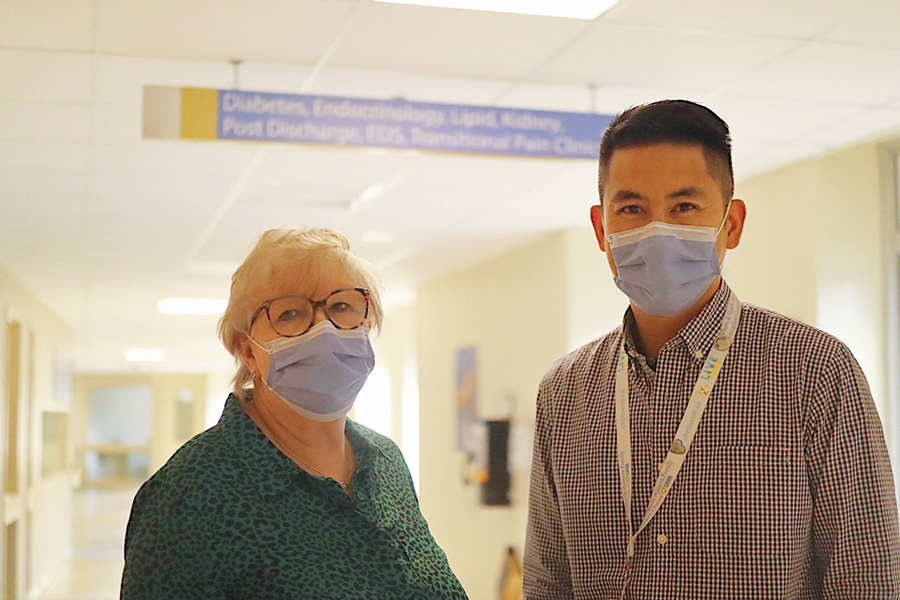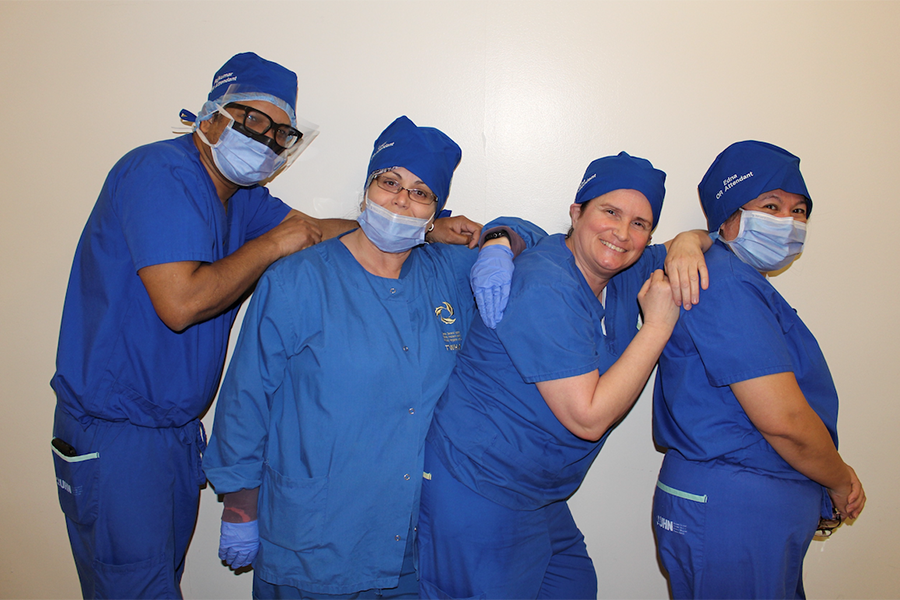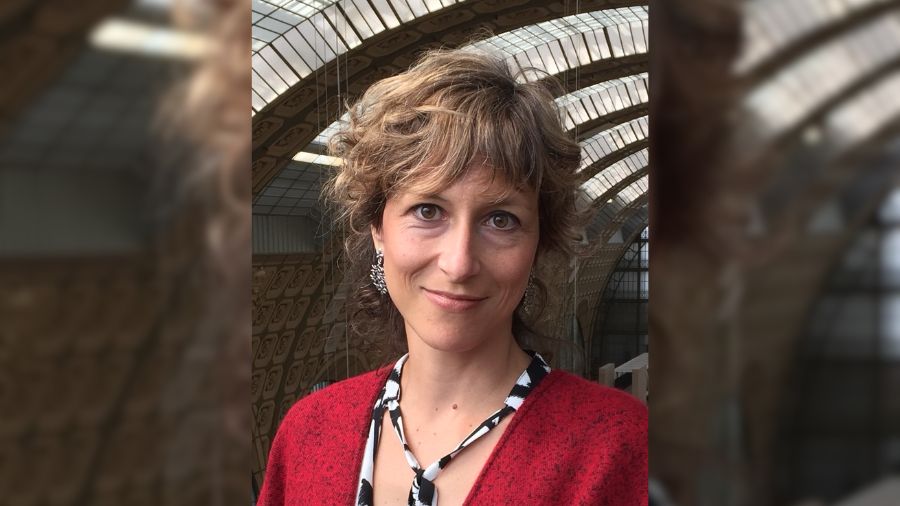Len Hodder, a UHN Transplant Ambassador and Centre for Living Organ Donation volunteer, has donated a kidney and part of his liver to transplant recipients in need. He is paired with other potential donors as well as individuals and families who have questions about their donor, to help support them through the process. (Photo: UHN)
For transplant recipients, understanding the process of receiving a kidney can be complicated.
Many wonder what the surgery will entail, what their recovery process will look like, and most importantly, where their kidney is coming from.
Until recently, nurses at UHN felt they had insufficient knowledge to answer these questions. While nurses specializing in nephrology are highly skilled in caring for patients with chronic kidney disease, not all of them have the expertise to answer questions about transplant.
This changed last year with the launch of the provincial initiative, “Access to Kidney Transplant (AKT).”
Clinicians from UHN’s Ajmera Transplant Centre and nephrology programs formed a working group to increase the number of patients receiving kidney transplants from the nephrology program at UHN, while also educating nurses working in dialysis units and nephrology clinics about transplant.
“Many of our patients deal with feelings of uncertainty, nervousness, and general confusion about how they’ll get a kidney transplant if they don’t have a family or friend willing to donate,” says Jacqueline Cooper, Clinical Manager, Home Dialysis and Nephrology clinics.
“To better assist these patients, we conducted a survey to measure nurses’ comfort levels when speaking to patients and families about transplant,” she says. “From there, we worked with the Ajmera Transplant Centre to develop a series of learning modules to increase knowledge and provide nurses with the tools needed to help guide patients through their transplant journey.”
Nurses engaged in detailed education sessions focusing on topics ranging from the benefits and risks of kidney transplants, donor types, post-transplant care, common myths and the timeline of when they might receive a kidney.
“One year since its launch, AKT education has been imbedded into the orientation of all new staff, so that everyone is better prepared to assist patients experiencing uncertainty while waiting for a kidney or on dialysis,” says Jacqueline.

The initiative also focuses on the benefits of receiving organs from living donors, as this type of donation can often last longer than an organ from a deceased donor, and can reduce or completely prevent a patient’s need for dialysis.
“It’s a reminder to continuously revisit the idea of living donation as a possible path to transplant, even if a patient has been on dialysis or active on the deceased donor transplant list for some time,” says Bee-Jay Realubit, Clinical Coordinator, Kidney Transplant Program.
“It’s also been a great opportunity to assess gaps in staff knowledge and increase awareness of the many resources at UHN, such as the Centre for Living Organ Donation and the Transplant Ambassador Program, that have evolved over the past few years.”
From one success story to another
A welcome addition to the AKT working group is a team of special volunteers, the Transplant Ambassadors, who provide peer support to patients and families. These ambassadors are successful transplant candidates, recipients or donors who share their personal stories, learn where a patient is on their transplant journey and answer questions they might have about the process.
“You learn pretty quickly about the struggles that they’re going through,” says Len Hodder, a UHN Transplant Ambassador and Centre for Living Organ Donation volunteer who has donated a kidney and part of his liver.
“Many of them just want to know what transplant is all about, and listening to someone who has lived experience is valuable to them.”
Since Len is a two-time donor, he is often paired with other potential donors, and with individuals and families who have questions and concerns about their donor.
“Many want to know if they are unnecessarily putting a friend or family member at risk who is donating an organ to them,” he says. “They just want to have all of the information before making a decision, ensuring the best possible outcomes for everyone involved.”
After speaking with positive role models such as Len, patients are able to go into the transplant process with more confidence.
“Sharing a positive story with others is something all ambassadors want to just pass on,” says Len.
“If there’s an opportunity to help someone and make their life better, that in and of itself inspires me.”
March is Kidney Health Month in Canada, which aims to educate and inform about kidney health. March 9 is World Kidney Day.


